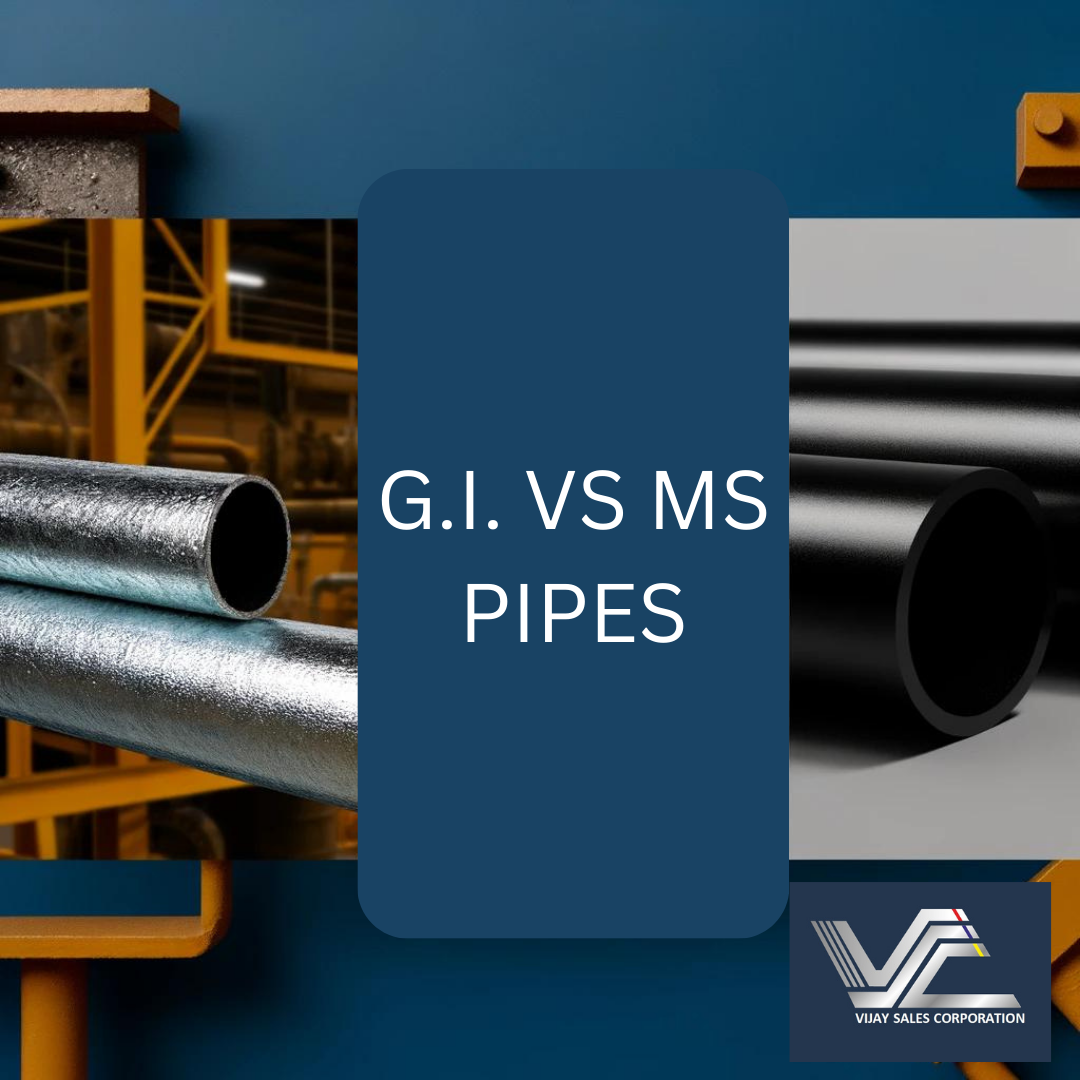Understanding Pipe Prices: A Comprehensive Guide
Navigating the world of pipes can be overwhelming, given the myriad of types and their varied applications. From construction to plumbing, pipes are a fundamental part of our daily lives. This article delves into the essentials of pipe pricing, types, and brands, providing a clear understanding for consumers and industry professionals alike.
What Determines the Price of Pipes?
The cost of pipes varies based on several factors:
Material: PVC, iron, steel, and mild steel (MS) are common materials. Each has a different price point.
Size and Length: The diameter and length of the pipe influence its price.
Type: For example, seamless pipes tend to be more expensive.
Brand: Prices vary among brands like Jindal, Tata, and others.
Popular Pipe Types and Their Prices
In the world of construction and manufacturing, choosing the right type of pipe is crucial. Pipes, a backbone of infrastructure, come in various materials and sizes, each serving different purposes. This comprehensive guide will delve into the popular types of pipes, focusing on Mild Steel (MS), Galvanised Iron (GI) Pipes and Stainless Steel (SS), helping you understand which is the best fit for your project.
Mild Steel (MS) Pipes
Mild Steel pipes are celebrated for their affordability and versatility. But why is mild steel cheap? The answer lies in its manufacturing process and the abundance of raw materials. MS pipes are made from carbon steel, which is plentiful and thus, less expensive.
Advantages of MS Pipes:
Cost-effective: Ideal for budget-conscious projects.
High Strength: Suitable for structural applications and heavy loads.
Flexibility: Easy to cut and weld, making them a favourite in construction.
Key applications of MS Pipes
Construction: MS Pipes form the backbone of modern infrastructure, providing structural support for buildings, bridges, and highways.
Plumbing: They're essential in water supply systems, ensuring efficient transportation of water with minimal leakage.
HVAC Systems: Utilized in heating, ventilation, and air conditioning systems for their excellent thermal conductivity.
Manufacturing: MS Pipes play a crucial role in the fabrication of machinery, automotive parts, and furniture, owing to their easy weldability and formability.
Oil & Gas Sector: These pipes are employed in the transportation of oil, gas, and other fluids, prized for their high pressure endurance.
Agriculture: Used in irrigation systems, MS Pipes help in the efficient distribution of water to agricultural fields.
Firefighting Systems: Their robustness makes MS Pipes suitable for firefighting applications, forming the mainstay of sprinkler and hose systems.
MS Pipes are valued for their strength in construction but need protection against corrosion. GI Pipes, with their zinc coating, offer better corrosion resistance, making them ideal for outdoor use and water supply. Stainless Steel Pipes excel in harsh environments due to their superior corrosion resistance and durability. PVC Pipes are lightweight, flexible, and resistant to chemical erosion, preferred for wastewater and various outdoor applications. Each type, from MS Pipes to PVC, caters to specific needs, balancing durability, resistance, and cost.
Galvanised Iron (GI) Pipes
GI pipes, or Galvanized Iron pipes, are steel pipes coated with a protective layer of zinc. This galvanization process enhances their resistance to corrosion and rust, significantly extending their lifespan compared to standard iron pipes.
Advantages of GI Pipes
Corrosion Resistance : The zinc coating on GI pipes provides a barrier against environmental factors that cause corrosion. This makes them ideal for outdoor or underground applications, where moisture and harsh conditions are prevalent.
Versatility : GI pipes are used in various settings, from transporting water to scaffolding and fencing. Their strength and durability make them suitable for both residential and industrial applications.
Easy to Use : Due to their rigidity and durability, GI pipes are easy to handle, cut, and fit, making installation and maintenance straightforward.
Applications of GI Pipes
GI pipes find their uses in several areas, including:
Plumbing: Particularly for outdoor and underground water pipelines.
Construction: Used in scaffolding, supports, and railings.
Agriculture and Irrigation: Ideal for irrigation systems due to their resistance to rust.
Industrial Manufacturing: Utilized in structures and conveyance of materials.
When compared to PVC or stainless steel, GI pipes strike an excellent balance between strength, resistance, and cost. They are more robust than PVC in structural applications and more cost-effective than stainless steel, making them a practical choice for a variety of projects.
Stainless Steel Pipes
When it comes to durability and corrosion resistance, SS pipes are unmatched. The inclusion of chromium and nickel in SS 304 makes them resistant to rust and corrosion, which justifies their higher price compared to MS pipes.
Benefits of SS Pipes:
Corrosion Resistance: Ideal for harsh environments.
Longevity: Less prone to wear and tear, offering long-term savings.
Aesthetic Appeal: Sleek appearance suitable for visible installations.
Stainless steel pipes, and SS 304 in particular, offer exceptional resistance to a wide range of chemicals and are a staple in industries such as food processing, medical, and construction.
PVC Pipes
PVC pipes, or Polyvinyl Chloride pipes, have become a staple in both residential and commercial construction, plumbing, and a myriad of other applications. This popularity is due to their outstanding balance of flexibility, durability, and cost-effectiveness.
Why Choose PVC Pipes?
Affordability and Efficiency : One of the most significant advantages of PVC pipes is their cost-effectiveness. They offer an economical solution without compromising on quality or performance. This makes them an ideal choice for large-scale projects where budget constraints are a key consideration.
Durability and Longevity: PVC pipes are known for their long lifespan and resistance to a variety of external factors. They are impervious to corrosion and chemical erosion, which is a common issue with metal pipes. This durability ensures that your piping systems last longer, reducing the need for frequent replacements and maintenance.
Versatility in Applications : From transporting drinking water to drainage systems and irrigation, PVC pipes have a wide range of applications. Their ability to withstand different pressures and temperatures makes them suitable for diverse environments.
Easy Installation : The lightweight nature of PVC pipes, coupled with their simple jointing process, makes installation quick and efficient. This not only saves time but also reduces labor costs, further enhancing their cost-effectiveness.
Comparative Table: MS Pipe vs. GI Pipe vs. SS Pipe vs. PVC Pipe
| Feature/Specification | MS Pipe | GI Pipe | SS Pipe (Grade 304) | PVC Pipe |
|---|---|---|---|---|
| Material Composition | Carbon steel | Iron with zinc coating | Stainless steel with 18% chromium and 8% nickel | Polyvinyl Chloride |
| Corrosion Resistance | Moderate, requires coating | Good, due to galvanization | Excellent | Good, not susceptible to rust or corrosion |
| Durability | High, but can corrode over time | High with protective coating | Very high, long-lasting | Moderate to High, varies with type |
| Usage | Structural purposes, engineering | Water, sewage, outdoor structures | Chemical, food processing, medical | Plumbing, irrigation, electrical conduit |
| Strength | Strong | Stronger than MS due to zinc coat | Highest strength among the three | Varies; generally lower than metal pipes |
| Weldability | Good | Good with proper technique | Requires special welding techniques | Not applicable; uses adhesive or fittings |
| Weight | Heavier than GI and SS | Lighter than MS | Lighter than MS and GI | Very light |
Price Comparison Table: MS Pipe vs. GI Pipe
(W.E.F. 8th Jan., 2024)
| Size (Inches) | Size (MM) | G.I. Pipes - Light (A Class) | G.I. Pipes - Medium (B Class) | G.I. Pipes - Heavy (C Class) | M.S. Black Pipes - Light (A Class) | M.S. Black Pipes - Medium (B Class) | M.S. Black Pipes - Heavy (C Class) |
|---|---|---|---|---|---|---|---|
| ½” | 15 | ₹166.00 | ₹206.00 | ₹225.00 | ₹124.00 | ₹145.00 | ₹170.00 |
| ¾” | 20 | ₹229.00 | ₹261.00 | ₹289.00 | ₹177.00 | ₹190.00 | ₹216.00 |
| 1” | 25 | ₹310.00 | ₹368.00 | ₹408.00 | ₹249.00 | ₹279.00 | ₹343.00 |
| 1 ¼” | 32 | ₹390.00 | ₹462.00 | ₹523.00 | ₹317.00 | ₹363.00 | ₹443.00 |
| 1 ½” | 40 | ₹479.00 | ₹535.00 | ₹617.00 | ₹399.00 | ₹410.00 | ₹509.00 |
| 2” | 50 | ₹586.00 | ₹700.00 | ₹834.00 | ₹507.00 | ₹590.00 | ₹716.00 |
| 2 ½” | 65 | ₹752.00 | ₹900.00 | ₹1,056.00 | ₹650.00 | ₹738.00 | ₹899.00 |
| 3” | 80 | ₹921.00 | ₹1,120.00 | ₹1,300.00 | ₹805.00 | ₹921.00 | ₹1,123.00 |
| 4” | 100 | ₹1,198.00 | ₹1,456.00 | ₹1,696.00 | ₹1,048.00 | ₹1,197.00 | ₹1,460.00 |
| 5” | 125 | ₹1,537.00 | ₹1,872.00 | ₹2,180.00 | ₹1,345.00 | ₹1,541.00 | ₹1,880.00 |
| 6” | 150 | ₹1,854.00 | ₹2,260.00 | ₹2,634.00 | ₹1,622.00 | ₹1,858.00 | ₹2,272.00 |
When it comes to selecting the right pipes for your construction or manufacturing project, understanding the cost differences between various types and sizes is crucial. The comparison between G.I. (Galvanized Iron) Pipes and M.S. (Mild Steel) Black Pipes across different classes (Light - A Class, Medium - B Class, Heavy - C Class) reveals important insights into how prices fluctuate based on size and material treatment, directly impacting project budgets and decisions.
G.I. Pipes, renowned for their superior corrosion resistance thanks to a protective zinc coating, typically come at a higher price point compared to their M.S. Black Pipe counterparts, which are celebrated for their robustness and adaptability. This price variance is particularly noticeable as pipe sizes increase, highlighting the additional material and manufacturing efforts required for galvanization.
This comparative analysis is invaluable for individuals and businesses in the construction, manufacturing, and retail sectors, offering a clear perspective on the cost implications of choosing between G.I. and M.S. Black Pipes for their specific needs. Whether the project demands the corrosion resistance of G.I. Pipes or the strength and versatility of M.S. Black Pipes, understanding these price differences aids in making informed, cost-effective decisions.
For those in search of quality pipes that meet the precise requirements of their projects, exploring the extensive selection available at Vijay Sales Corporation can lead to finding the perfect fit, balancing between performance, durability, and budget considerations.



